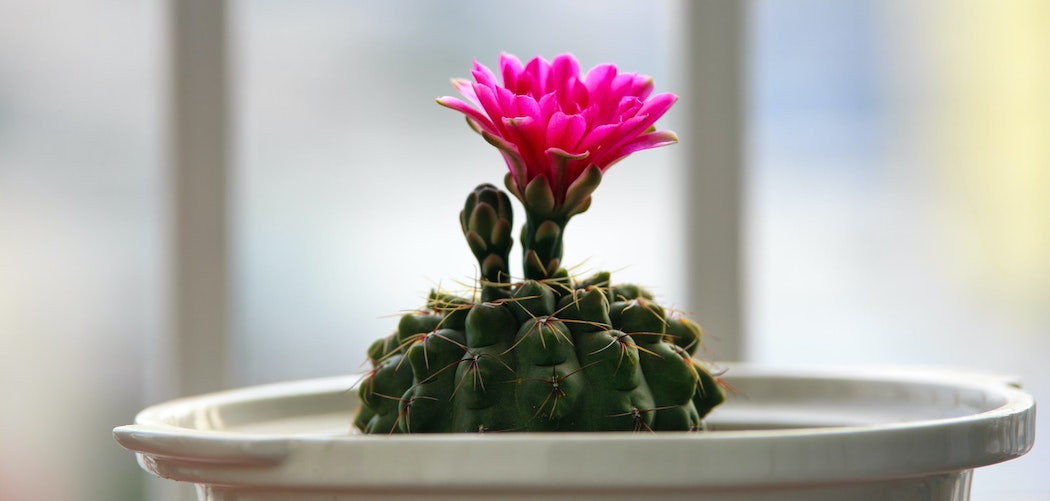It’s always good to learn everything you can about your houseplants, and understanding what kind of plants you have will make sure you don’t get an unpleasant surprise next winter.
So, Are Houseplants Considered Perrenials Or Annuals:
Houseplants can be annuals or perennials, it all depends upon the plant species. Some houseplants will only live for a single year, and others will keep growing year after year. It’s important to research the specific plant that you have so you know what to expect.
What Is The Difference Between Perennial And Annual Houseplants?
An annual plant is one that will take root, flower, produce new seeds, and die within a growing season. A Perennial plant may flower and produce seeds every year, but they will not die themselves for several years.
Annual plant’s growing season tends to be spring to fall, but may vary depending on the plant. The plant will not regrow the following year, and the only way to keep it is to grow new plants from the seeds it has produced.
Annual plants can come in all shapes and sizes, because the word simply refers to the amount of time that the plant will live for, and how quickly it completes everything that it needs to do within its lifetime.
A perennial plant, by contrast, is one that will grow for two years or more. Most only live for up to five years, but some can continue even longer than this.
However, it can be confusing trying to tell the plants apart, because perennials do often die back for the winter, and may seem to disappear entirely until the following spring.
Their root systems will remain intact, even if the rest of the plant dies back, and they will continue to grow from that same root system the following spring (or during a different season, depending on the plant).
There are no visible clues to tell you which kind of plant is which. You will have to research the individual houseplants that you want to keep to find out which are annuals and which are perennials.
Are Annuals Or Perennials Better Houseplants?
In general, perennials are considered better when it comes to houseplants. Perennials can be easier to keep and have the advantage of growing back year after year, letting you enjoy the plant for much longer.
If you want to keep growing an annual plant year after year, you will either need to buy new ones, or you will have to harvest, dry, store, and replant its seeds, and then pot them up into larger containers once they have grown.
This can require a fair bit of space, and also requires you to buy compost, empty out used containers, store the pots when they aren’t in use, etc.
Perennials can be much easier.
They will sometimes need repotting, but it may not be a yearly task (depending upon the plant) and there is no requirement to store and dry the seeds, or to find a spot for tender seedlings.
You can do so if you want to, but you don’t need to in order to keep enjoying your plant.
On the whole, this makes most perennials less work, and less expensive. However, perennials may require some work in terms of pruning and fertilizing, while an annual may not need this.
Can Annual Houseplants Become Perennials?
A plant that is a true annual cannot become a perennial. Annual plants simply will not live to see a second year, no matter what you do.
Some annual garden plants are actually perennials that simply cannot cope with the cold climate they are grown in.
In these cases, it is possible to bring the plant indoors to protect it from the frost or cold weather, and it may then overwinter and survive to see another year.
However, this is rarely the case with annual houseplants. They are already being kept inside your home, so there is not much that you can do to further protect them.
If they are dying at the end of the year, it is not likely to be due to cold weather provided they are indoors, so they probably are genuinely annuals.
Annual plants have not evolved to try and survive through the winter using dormancy or slow growth, and instead, they depend upon their seeds surviving and continuing their legacy.
Can You Save Annuals Over Winter?
Annual plants will reach a natural end to their lives in winter, no matter what you do. Providing supplementary light by installing a grow light beside the plant may be enough to keep it going for a little longer, but you won’t be able to save it until the next year.
If you have garden plants that are annuals, you may be able to save them by bringing them into an unheated porch or a garage during the coldest parts of the winter. Plants that are not frost tolerant may benefit from this.
However, you are unlikely to be able to save an annual houseplant in this way, because it is already being kept warm.
Which Houseplants Are Perennials?
Many common houseplants are perennials and will continue to thrive in your home for years on end. In fact, most popular plants that we all know and love are perennials.
If you do not want to keep replacing your plants with new ones, consider some of the following options:
- Spider plants – which produce lots of “pups” and look very pretty trailing down walls
- Aloe Vera – which is excellent for rubbing on sunburns and needs very little care
- Golden Pothos – a gorgeous scrambling plant that needs minimal work besides the odd prune
- Snake plants – which are very popular and hardy perennials
- Heartleaf Philodendron – which will flow over surfaces and cascade down walls
- Purple oxalis – a gorgeous plant if you love rich purple leaves and pale pink flowers
- Monstera – a well-known and sought-after plant that is also known as a Cheese plant
- Peperomia – coming in a range of colors that seem to glow when the sun strikes the leaves
- Christmas cactus – which is easy to care for and requires very little attention, although it isn’t easy to get it to flower
- Peace lilies – much loved for their famous white blooms and rich, glossy foliage
- Rubber plants – popular in offices and reasonably easy to grow
All of these plants will bring color and foliage to your home year after year, and most are easy to care for.
You will need to spend a bit of time learning about their requirements, but once you have those sussed, these plants should thrive
Which Houseplants Are Annuals?
Most annual houseplants can also be grown outdoors in the garden, but many will thrive inside the home as well.
Here are a few annual plants that you will need to gather seeds from if you wish to keep enjoying them:
- Marigolds – which come in an array of reds, yellows, and oranges. These will die back when the growing season ends
- Petunias – offering bright colors and amazingly delicate petals for one season only
- Basil – which will provide you with a tasty treat for the year, but must be sown from seed the following season
- Lettuce – which will also only last for a single season
- Poppies – which could be grown in the home, although they are usually sown outdoors
Most of the common houseplants are perennials, so you don’t need to be too worried about annuals sneaking in there, but it is always worth double-checking before you plant something.
How Can You Tell If Your Plant Is A Perennial Or An Annual?
There are no easy methods by which to identify whether a plant is a perennial or an annual when you look at it in a store or garden center. The only way to actually tell is to research the plant’s name online, or to plant it and observe its behavior.
Don’t worry if it dies back in the winter; many perennials do this, as well as annuals.
Watch to see if it comes up again the following spring. Don’t empty containers until you are sure that the plant is not going to reappear.
The only other hint is that most annuals will produce lots of blooms in one year, because they need to produce as many seeds and baby plants as possible before they die.
Perennials, with longer lifespans, may produce fewer flowers.
Final Thoughts
Most houseplants are perennials, which is good news if you want to keep them growing and flowering year after year, rather than having to replace them all the time.
It is always worth checking before you buy a plant, however, so you know what you’re getting.


